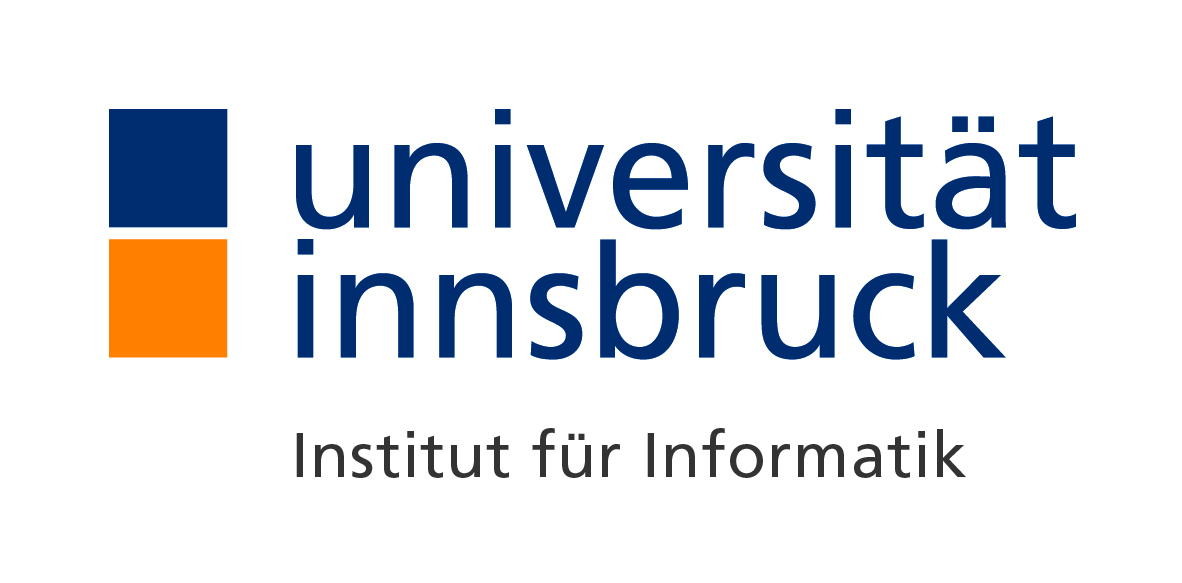

RocketRML - A NodeJS implementation of a use-case specific RML mapper
Umutcan Şimşek, Elias Kärle, Dieter Fensel
KGB Workshop co-located with ESWC 2019, Portoroz, Slovenia, June 03, 2019
Twitter: @semantifyit | @umutsims
Acknowledgement
We would like to thank to our developers Phillipp Häusle and Thibault Gerrier for their
implementation support.
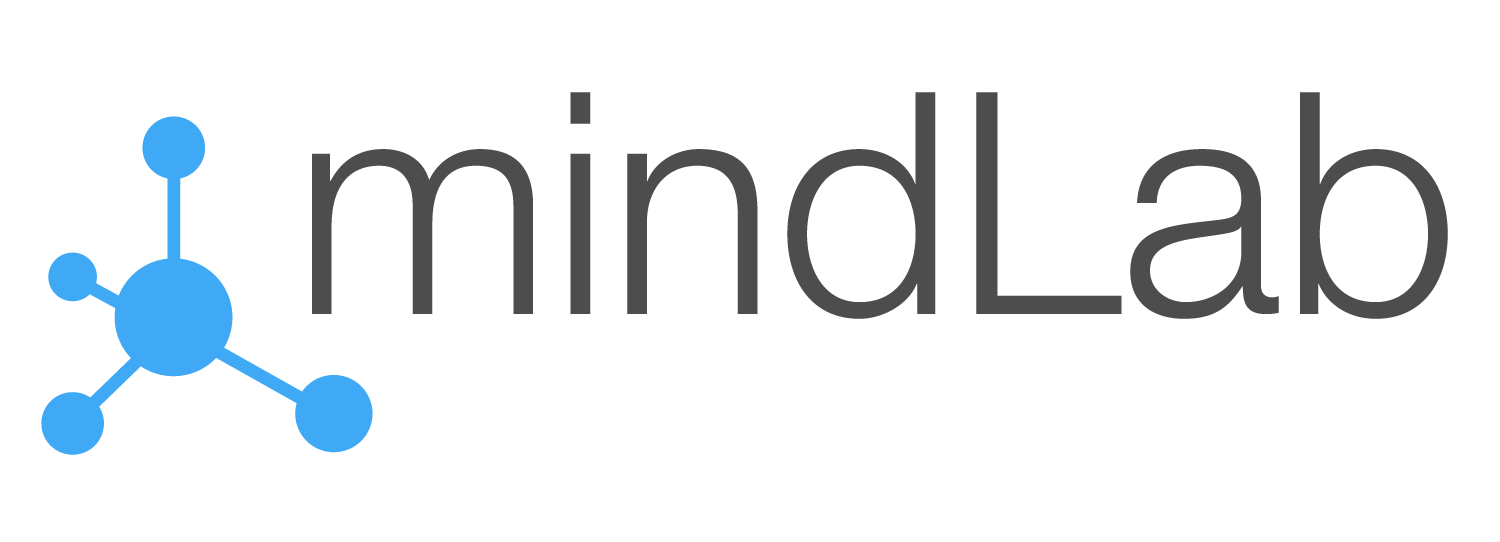

Introduction
We are building knowledge graphs, mainly based on tourism data
Tyrolean Tourism Knowledge Graph (27M+ facts per crawl from 7 different sources)
MindLab (in progress)
DACH-KG (in progress)
We get the data from various (mostly) propriatery sources, typically in JSON or XML format
Then, we map them to schema.org
The generated RDF data feeds the knowledge graphs and websites as semantic annotations
We needed a scalable mapping solution
We looked around, made some preliminary tests and found RML very suitable for this task
But soon we faced some challenges due to our uses cases, so we decided to implement a new mapper
Motivation
- handle large files (>500 MB)
- work with nested objects that do not have any fields to join
[{
"name":"Gschwandtkopflifte",
"type":"SkiResort",
"contactDetails":[
{
"address":{
"street":"Gschwandtkopf 700",
"postcode":"6100",
"city":"Seefeld",
"type":"Office"
}
},
{
"address":{
"street":"Gschwandtkopf 702",
"postcode":"6100",
"city":"Seefeld",
"type":"Lifte"
}
}
]
}]
Tool
Limitations
Only XML and JSON as source format (CSV support is coming)
No Named Graphs
No JOIN Support
Only javascript functions
Tool
Customizations
New Iterator Behaviour
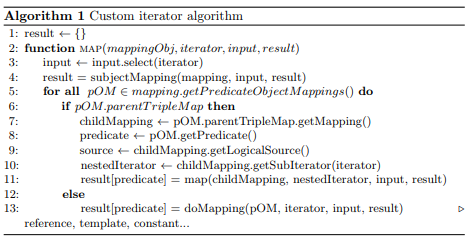
Tool
Customizations
Global Language Tags
The language tag can be given to the mapper as an option and this tag is then attached to all mapped string literals
Particularly useful for data from the tourism sector
Tool
Performance Tests
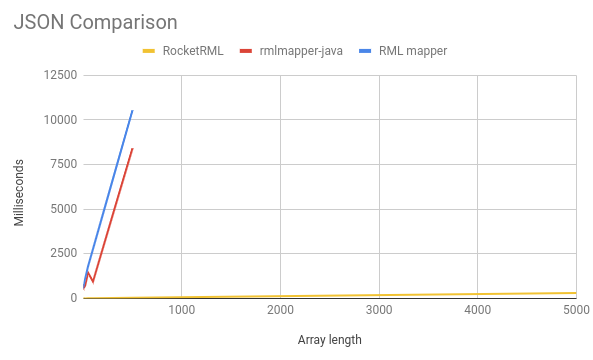
RML-Mapper: v3.0.2 | RML-Mapper-Java: v4.3.1
Tool
Performance Tests
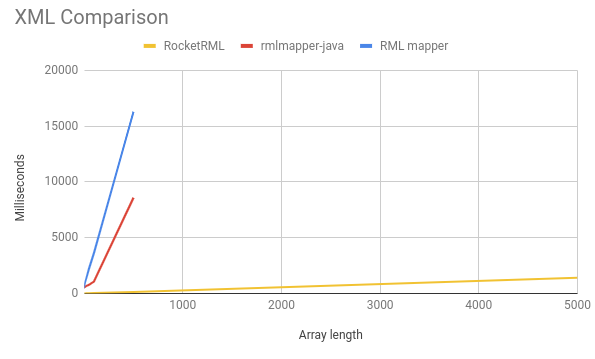 RML-Mapper: v3.0.2 | RML-Mapper-Java: v4.3.1
RML-Mapper: v3.0.2 | RML-Mapper-Java: v4.3.1
RML Test Cases
All applicable tests passed.
New Implementation with Joins
Implementing joins affected the performance drastically.
So we did some optimizations...
New Implementation with Joins
- Each TriplesMap is iterated once
- Before starting the mapping process for a TriplesMap, we check whether the TriplesMap is in the join condition of another TriplesMap. If it is, then we get the parent path of the join condition and evaluate it. The value then is cached as path - value pair
New Implementation with Joins
- Then we map the data based on the TriplesMap as usual. If there is a join condition encountered during the mapping, then value of the child and path to the parent is cached in the child
- After everything is mapped, we go through two caches and join the objects with matching child and parent values.
New Implementation with Joins
rr:subjectMap [ rr:template "http://example.com/resource/student_{ID}";
rr:class <http://example.com/ontology/Student>;
];
rr:predicateObjectMap [
rr:predicate foaf:name ;
rr:objectMap [ rml:reference "Name" ];
] ;
rr:predicateObjectMap [
rr:predicate <http://example.com/ontology/practises> ;
rr:objectMap [
a rr:RefObjectMap ;
rr:parentTriplesMap <TriplesMap2>;
rr:joinCondition [
rr:child "Sport" ;
rr:parent "ID" ;
]
];
]; An excerpt from RMLTC0009b-JSON mapping file
Comparison with other RML Implementations
RML-Mapper: v4.3.3
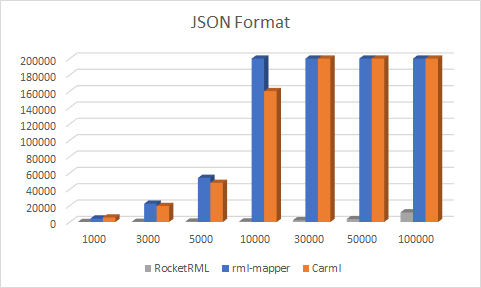
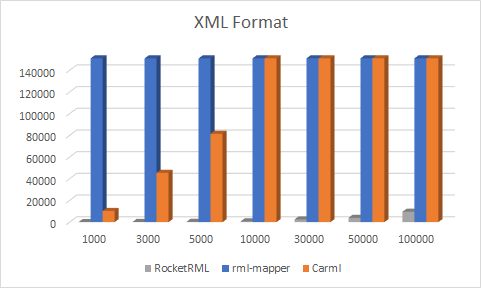
Comparison with Other RDF Generation Tools
Karma: v2.2
RML-Mapper: v4.3.3
SPARQLGenerate: v1.2
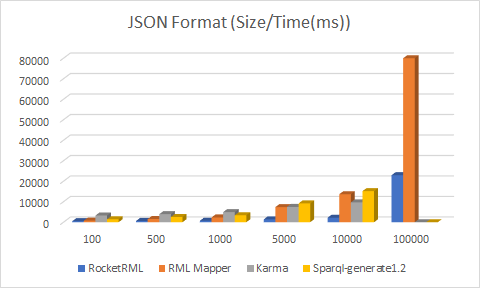
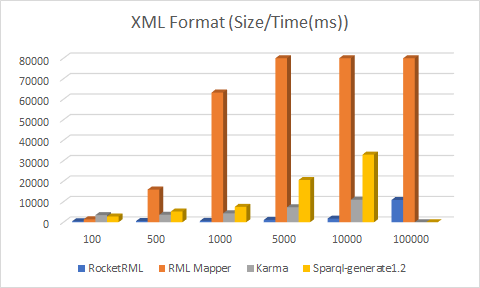
RML Test Cases
All applicable tests passed.*
* Currently, there is an issue with blank node naming due to the jsonld library.
Source Code on GitHub
Also available as NPM package and integrated with semantify.it
Thank you for your attention!
We are looking forward to new cooperation with the Knowledge Graph community!